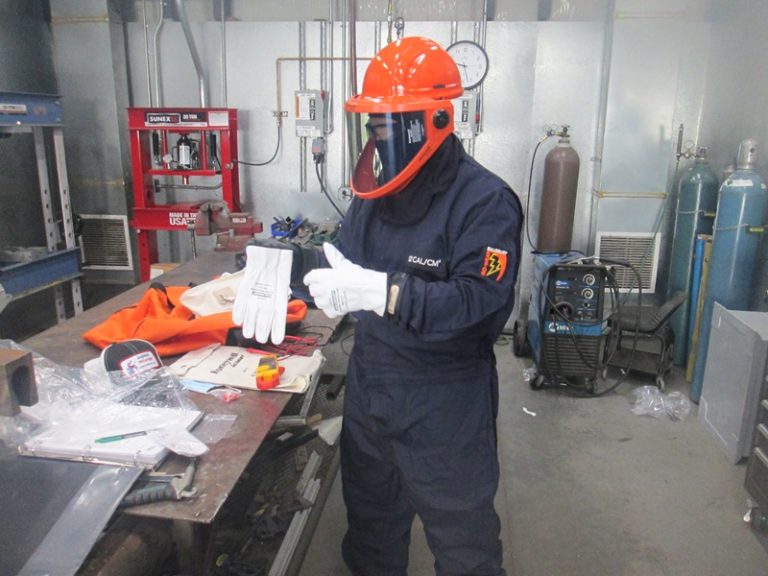
Electrical PPE is one of the most vital safeguards for preventing injuries and fatalities in industries where workers are exposed to electrical systems and equipment. Electrical hazards such as arc flashes, electrical shocks, and burns can occur without warning, putting employees at significant risk. Ensuring that workers are equipped with proper electrical PPE is not only a legal requirement but also a critical component of workplace safety.
Electrical PPE provides a barrier protecting workers from exposure to hazardous energy sources. The primary types of PPE include:
- Insulated Gloves and Sleeves: These protect workers from electric shock when working on or near live electrical circuits.
- Arc-Rated Clothing: Arc flashes can generate intense heat and energy, causing severe burns. Arc-rated clothing is designed to resist ignition and reduce the severity of injuries.
- Face Shields and Arc Flash Hoods: These offer protection from flying debris, intense heat, and light during an arc flash event, which can damage the eyes and skin.
- Safety Footwear: Insulated boots help protect workers from potential hazards on the job, where electricity might enter the body through the feet if they are standing on an energized surface.
Without these critical pieces of equipment, the likelihood of accidents increases drastically, leading to severe injury, permanent disability, or even death.
Legal Requirements and Industry Standards
OSHA and National Fire Protection Association (NFPA) regulations mandate the use of electrical PPE for workers exposed to electrical hazards. NFPA 70E, in particular, outlines the standards for electrical safety in the workplace, including guidelines for selecting and maintaining the appropriate PPE. Failure to comply with these regulations can result in hefty fines and, more importantly, jeopardize worker safety.
However, it’s not just about wearing the equipment; workers need to understand how to properly use, inspect, and maintain their PPE to ensure its effectiveness. This is where expert advice and training matter.
The Role of Expert Training
Even the best electrical PPE is only effective with proper training. Workers must know how to assess risks, choose the appropriate PPE for each task, and perform regular inspections to ensure their gear is in optimal condition. Additionally, employees should be trained to understand the different arc flash hazard levels and how PPE mitigates these risks.
Trust ESS for PPE Expertise
The correct electrical PPE can mean the difference between life and death. While PPE provides crucial protection against electrical hazards, its effectiveness hinges on proper training and usage. By working with experts like Electrical Safety Specialists, companies can create a safer working environment, minimize risks, and ensure compliance with safety regulations. Don’t wait until an accident happens—equip your team with the right knowledge and gear today.
